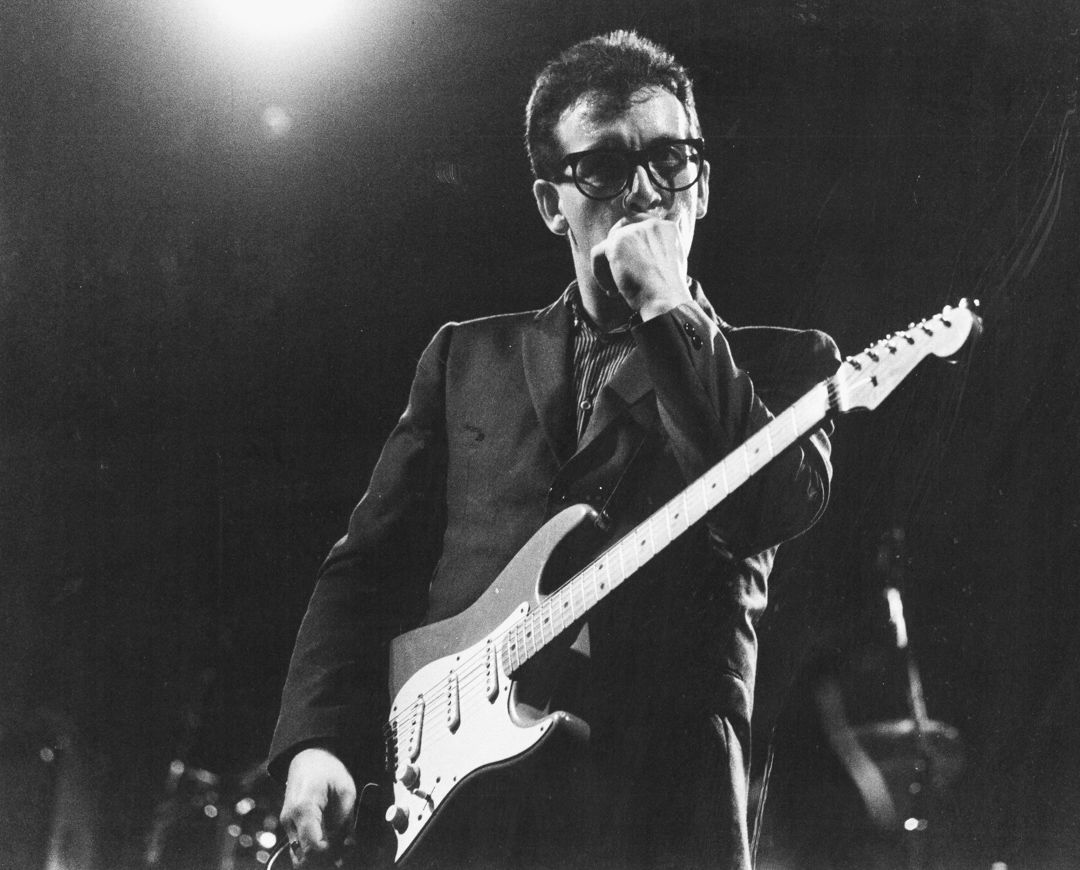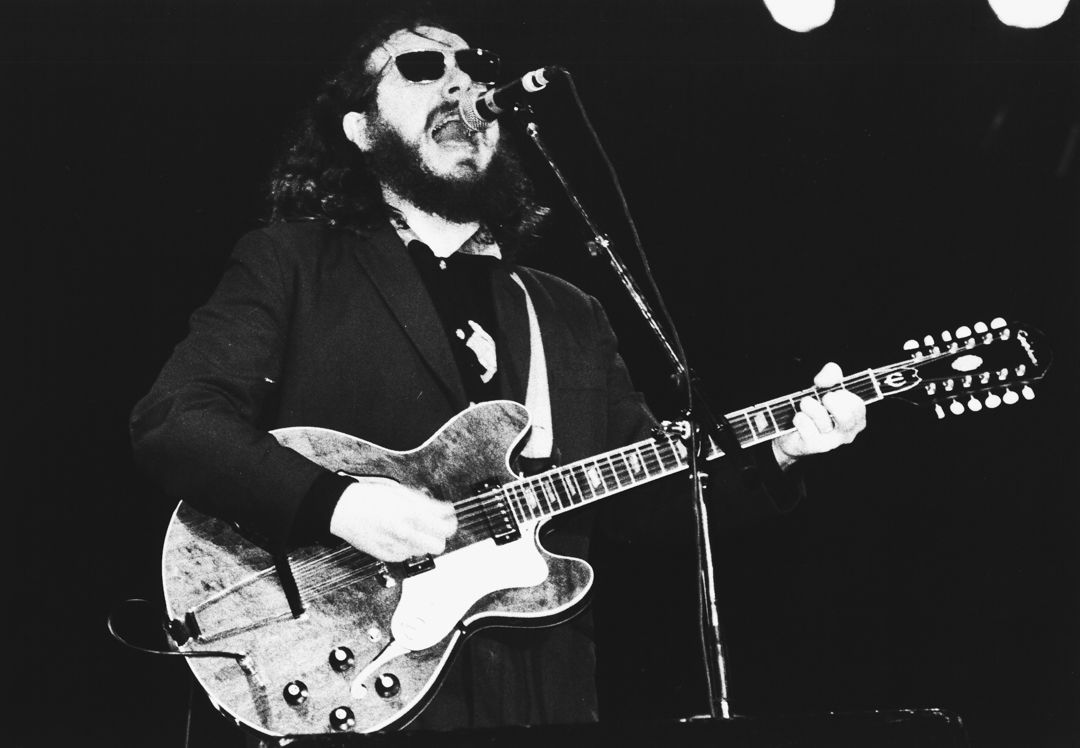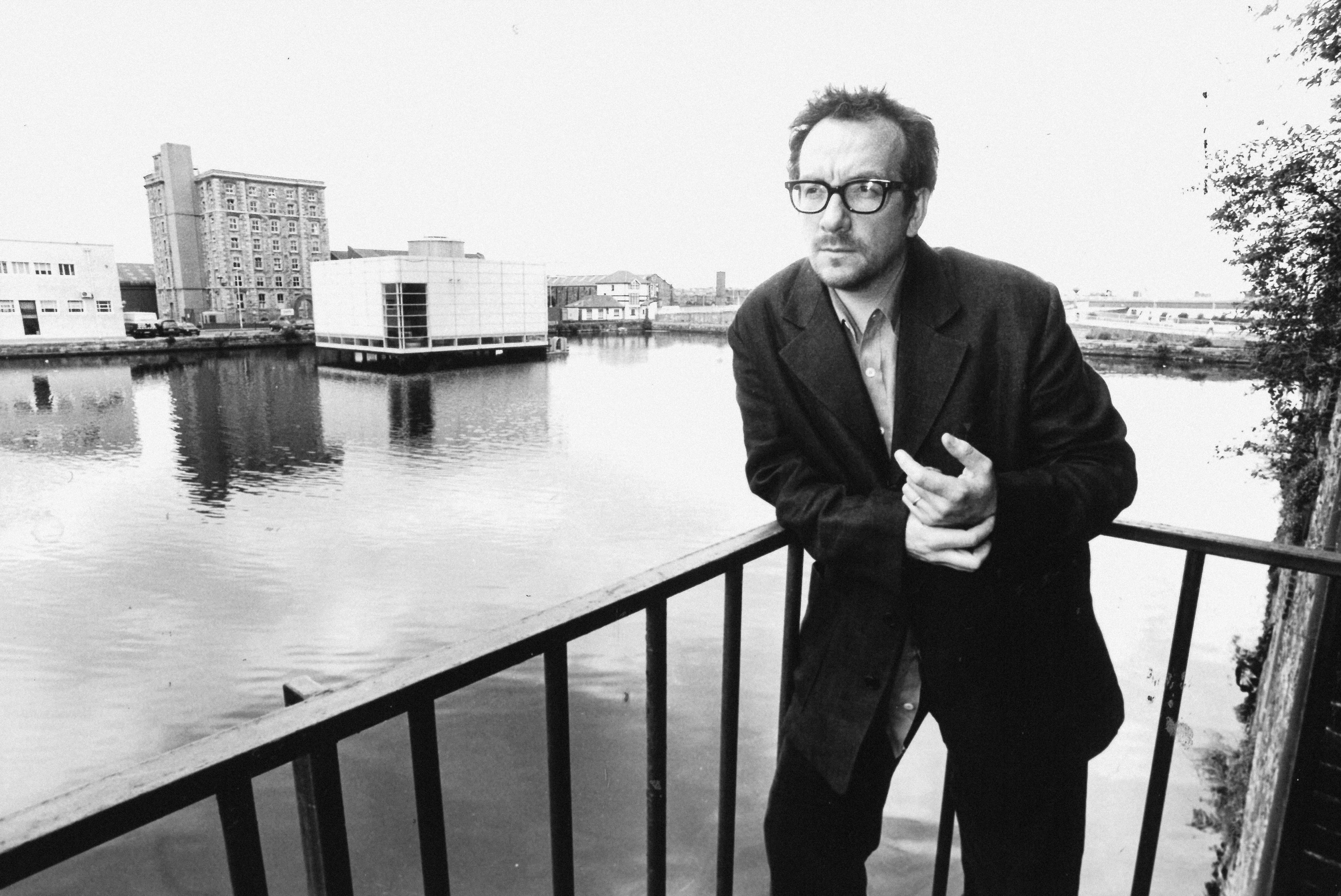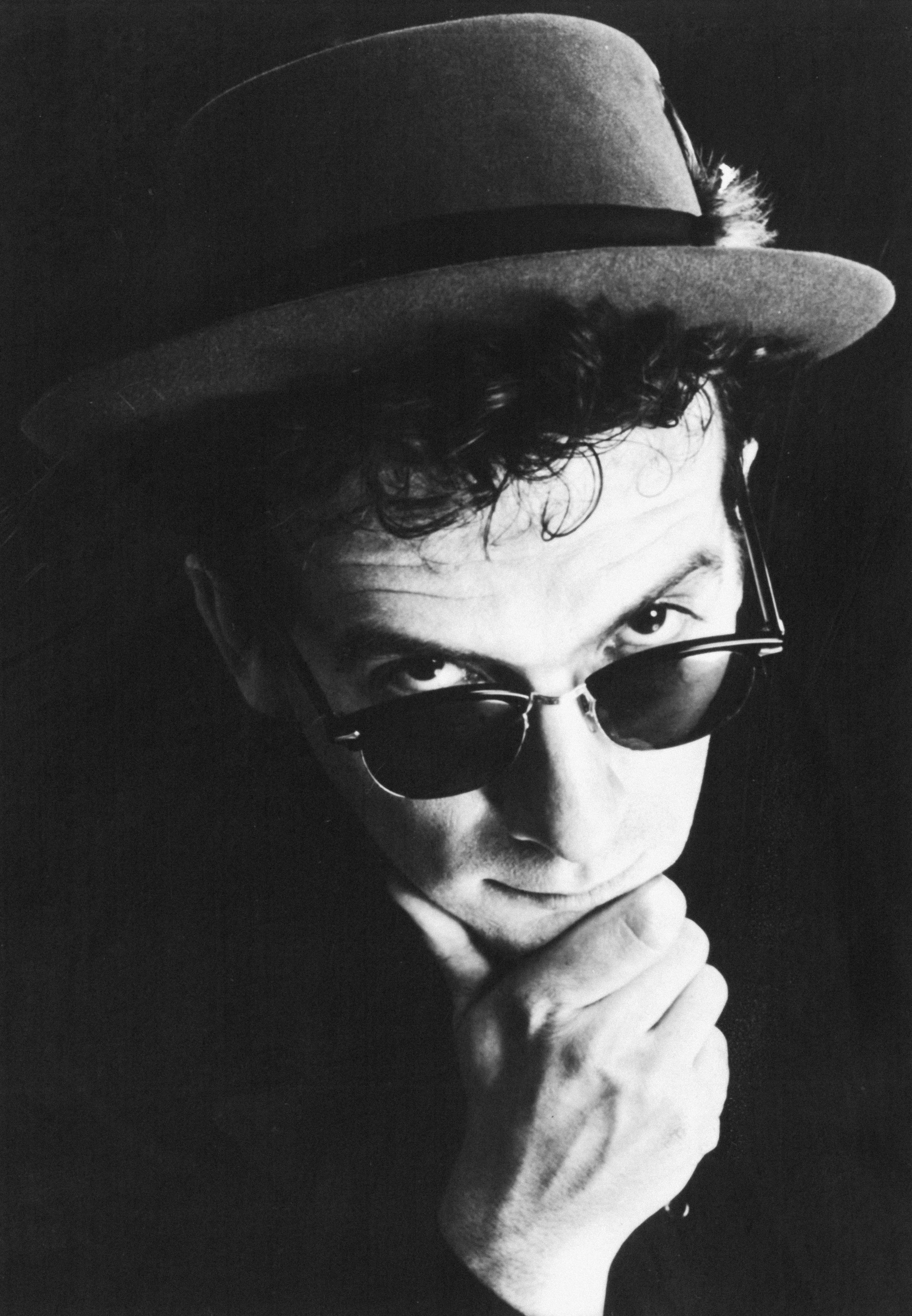Oliver’s Army
By Elvis Costello

Elvis Costello – real name Declan McManus – emerged in the first wave of the British punk and new wave movement, signing to Stiff Records, the hip record label run by Irishman Dave Robinson and Jake Riviera. His debut My Aim Is True (1977) was a hit with critics, giving added momentum to his ambitions as a songwriter. He was prolific. Armed Forces – his third album and the first where his band The Attractions were credited on the front cover – was released in the first week of January 1979. ‘Oliver’s Army’ was the first single from the LP and the song became his biggest UK hit, staying at No.2 for three weeks, selling over half a million copies. It was a substantial hit in other territories as well. Still a radio favourite, it is, perhaps the song ‘the other Elvis’ – undoubtedly one of the greatest and most prolific songwriters of the modern era – is most famous for.
The Story Behind The Song
With a birth name like Declan Patrick McManus, it doesn’t require a DNA kit to realise that the man who chose the stage name Elvis Costello came from Irish stock. As Neil McCormick wrote when he interviewed Costello for Hot Press in 1989, “Of Irish descent on his father’s side, his grandparents were Irish émigrées from God knows where.” His father grew up in Birkenhead, “an almost exclusively Irish town.” The Irish roots were close enough, Elvis acknowledged, to have a strong influence on his father and Elvis grew up with traditional songs – among other forms of music– being sung and played around the house. By the time he came to write his autobiography, Unfaithful Music & Disappearing Ink, in 2015, Costello had pushed the timing back a generation. “Like a lot of Irishmen born into the years of the Great Famine," he explained, "my great-grandfather John McManus got himself out of Ireland as soon as he was old enough to do so.”
No matter. Elvis was always confident in the links to his ancestral home. Costello’s father was the well-known singer Ross McManus, who performed with Joe Loss and his Orchestra, a famous middle-of-the-road pop outfit. The records that Ross brought home – he needed then to learn how to sing the songs of the day – were passed on to his young son, who absorbed them like a sponge. There are few singers with as great an in-depth knowledge of pop music history as Elvis.
Declan McManus explained the genesis of ‘Oliver’s Army’ in the sleeve notes, written for the 2002 reissue of Armed Forces. “I made my first trip to Belfast in 1978," he explained, "and saw mere boys walking around in battle dress with automatic weapons.” He was talking about the British Army, who patrolled the streets of Northern Ireland during the Troubles. “They were no longer just on the evening news. These snapshot experiences exploded into visions of mercenaries and imperial armies marauding around the world. The song was based on the premise: ‘they always get a working class boy to do the killing’. I don't know who said that; maybe it was me, but it seems true nonetheless. I pretty much had the song sketched out on the plane back to London.”

Elvis Costello and twelve-string guitar, shot live by Cathal Dawson
Elvis Costello and twelve-string guitar, shot live by Cathal Dawson
Costello used the name Oliver as a reference to the infamous English general Oliver Cromwell – not so much for his crimes in Ireland (which were many) as for the fact that he established the New Model Army, which was the first professional fighting force in England. Oddly, this would not be the only top ten UK hit to reference Cromwell, who also shows up in Morrissey’s 2004 single, ‘Irish Blood, English Heart’, a title that reflects the former Smiths man’s similar Irish roots.
Elvis Costello - Oliver's Army (Glastonbury 2013)
Costello was pretty sure that the success of the song was not down to its lyrics – and you can understand why. They are extremely serious indeed, mentioning by name what became known as ‘murder mile’, in North Belfast, where – during that awful era of sectarian bloodshed – a significant number of Catholics or Nationalists were murdered by loyalist paramilitaries. “I always liked the idea of a bright pop tune,” he said, “that you could be singing along to for ages, before you realise what it is you’re actually singing.”

Elvis Costello, in the Docklands area of Dublin, photographed for Hot Press, by Cathal Dawson
Elvis Costello, in the Docklands area of Dublin, photographed for Hot Press, by Cathal Dawson
According to producer Nick Lowe, initial attempts to record the song did not meet with Elvis’ satisfaction, despite the fact that it was being thought of as a mere B-side to an as-yet-undecided single. For a brief period, Lowe thought he might be able to steal the track, which he liked, for himself. It was the keyboard wizard with the Attractions, Steve Nieve, who suggested playing an Abba-style keyboard part on it. It was this, said Lowe, that changed the arrangement “from black-and-white to fireworks.” Listeners and critics alike have pointed to Abba’s ‘Dancing Queen’ as the obvious inspiration, and the melody has been compared to ‘Baby, I Love You’ by The Ronettes. But that’s not to diminish three of Costello’s finest minutes, even for a second. It would be very hard to find a Costello compilation that it’s not on.
Oliver’s Army at Top of The Pops (1978)
“‘Oliver's Army’ is an important track for me,” Elvis’ father Ross McManus said of the song. “My grandfather was an Ulster Catholic, and as a child, I lived in an area where bigotry was rife.”

Elvis Costello: "There was a checkpoint Charlie/ He didn't crack a smile..."
Elvis Costello: "There was a checkpoint Charlie/ He didn't crack a smile..."
Dirty Pretty Things covers Oliver’s Army 2006
It was Elvis’ biggest ever UK hit, holding down the No.2 spot for three weeks. It reached No.4 in Ireland. And it propelled the album Armed Forces to No.10 in the US, and made it a hit in Australia, New Zealand, Canada, Scandinavia and the Netherlands. ‘Oliver’s Army' was also a hit on the then-new MTV in the US, with the video shot in an Hawaiian strip club at four in the morning being played on the station’s first day of broadcasting in August 1981. It is a song that is more difficult to sing now, because of some of the language used – though a few small lyrical changes might make all the difference. There have been various cover versions, the most notable by Britpop leaders Blur, who recorded it for a charity album. It has been played by the original producer Nick Lowe and by the Scottish indie darlings, Belle & Sebastian. The British comedy duo Cannon & Ball also had a go. But it is a song – an iron fist in a velvet, sugary glove – that will always be synonymous with the young spiky, bespectacled Elvis Costello as he stormed his way to the upper reaches of the charts across the world.
